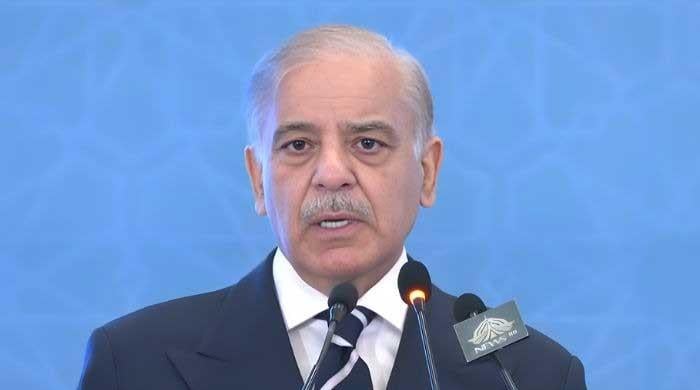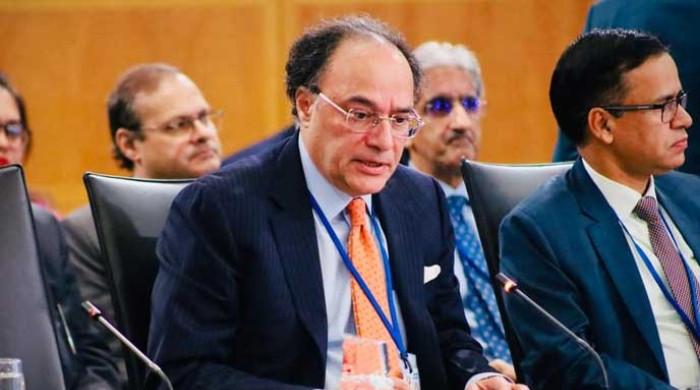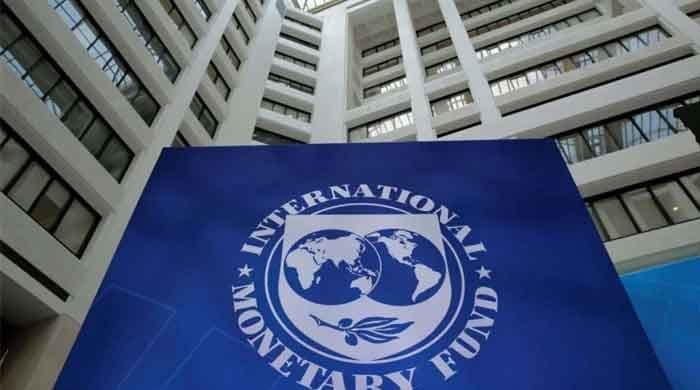Finance adviser reviews FATF action plan implementation
Pakistan has until May to ensure implementation on measures laid down by FATF, a global body that combats terror financing and money laundering
May 06, 2019

ISLAMABAD: The Prime Minister's Adviser on Finance, Dr Abdul Hafeez Sheikh, reviewed implementation on the recommendations of the Financial Action Task Force (FATF) in a meeting here on Monday.
Secretary Finance gave a briefing during the meeting over the recommendations from FATF, a global body that combats terror financing and money laundering.
Implementation on the FATF recommendations is critical, the finance adviser told officials at the meeting, ordering all concerned departments to work 24 hours in order to ensure their implementation.
The Governor State Bank of Pakistan (SBP) and the Interior Secretary as well as officials from the Federal Board of Revenue (FBR), Financial Monitoring Unit (FMU), Securities and Exchange Commission of Pakistan (SECP), and National Counter Terrorism Authority (NACTA) were present during the meeting.
Representatives from law enforcement agencies also attended the session.
In October, the FATF Asia Pacific Group had demanded more action from Pakistan to put an end to money laundering and giving financial assistance to terrorists.
Following a meeting in Paris in June last year, the Paris-based organisation formally included Pakistan on its "grey list" of countries with inadequate controls over curbing money laundering and terrorism financing.
The organisation can make recommendations to any of the countries that have signed a membership charter, as well as other nations, but it has no power to impose sanctions.
According to sources, Pakistan has until May to ensure implementation on the measures laid down by FATF.
FATF action plan objectives
The action plan given to Pakistan to address its 'strategic deficiencies' include the following measures:
1. Adequately demonstrating its proper understanding of the TF risks posed by the terrorist groups above, and conducting supervision on a risk-sensitive basis.
2. Demonstrating that remedial actions and sanctions are applied in cases of AML/CFT violations, and that these actions have an effect on AML/CFT compliance by financial institutions.
3. Demonstrating that competent authorities are cooperating and taking action to identify and take enforcement action against illegal money or value transfer services (MVTS).
4. Demonstrating that authorities are identifying cash couriers and enforcing controls on illicit movement of currency and understanding the risk of cash couriers being used for TF.
5. Improving inter-agency coordination including between provincial and federal authorities on combating TF risks.
6. Demonstrating that law enforcement agencies (LEAs) are identifying and investigating the widest range of TF activity and that TF investigations and prosecutions target designated persons and entities, and persons and entities acting on behalf or at the direction of the designated persons or entities.
7. Demonstrating that TF prosecutions result in effective, proportionate and dissuasive sanctions and enhancing the capacity and support for prosecutors and the judiciary; and
8. Demonstrating effective implementation of targeted financial sanctions (supported by a comprehensive legal obligation) against all 1267 and 1373 designated terrorists and those acting for or on their behalf, including preventing the raising and moving of funds, identifying and freezing assets (movable and immovable), and prohibiting access to funds and financial services;
9. Demonstrating enforcement against TFS violations including administrative and criminal penalties and provincial and federal authorities cooperating on enforcement cases.
10. Demonstrating that facilities and services owned or controlled by designated person are deprived of their resources and the usage of the resources.











